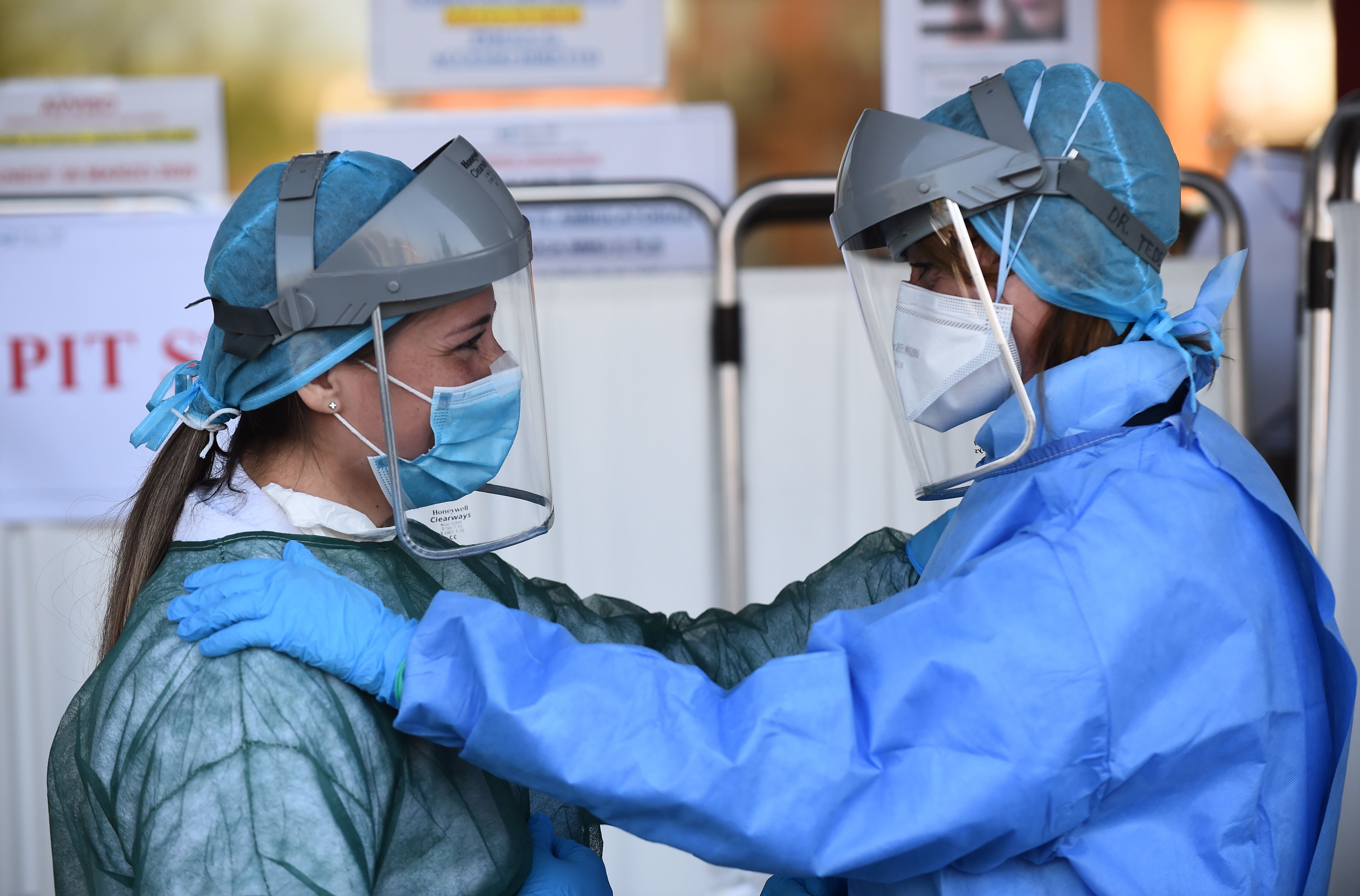Italy's women snubbed in COVID response – Italy's COVID-19 commission, which was selected to advise the government on how to manage the crisis, has gathered for a televised briefing each night to update the public on the day's news. But in a country where more than half of doctors, and three-quarters of nurses, are women, Italians have noted a glaring omission: the 20-member body is made up entirely of men. Now, anger over gender inequality in the coronavirus response is gaining momentum: more than 70 women doctors and scientists have signed a petition demanding that the Italian government include females in the councils that govern the country's response to the pandemic. Female lawmakers have lodged a similar motion in the Senate. The absence of women in the policymaking process has led to some big mistakes, critics say: Prime Minister Conte's reopening plan, for example, fails to address childcare burdens, which disproportionately fall on the female population. The gender imbalance in the government's coronavirus response tracks broader inequalities in Italy, where only 53 percent of Italian women are represented in the workforce, the second lowest mark in the EU.
COCAINE-19: the pandemic and traffickers – The coronavirus pandemic is wreaking havoc with the global narcotics trade, scrambling its supply chains, and causing street prices for some illicit drugs to skyrocket, says a new UN report. In normal times, cartels ship most of their stuff hidden in planes and ships carrying otherwise legitimate goods. But as coronavirus lockdowns close borders, cripple air travel, and reduce maritime trade, drug producers are struggling with shortages of labor and precursor chemicals, while smuggling their final product is getting a lot riskier. Mexican opioid producers, for example, can't get the chemicals they usually import from China. Poppy farmers in South Asia are seeing demand, and prices, for their crops collapse as opportunities to export shrivel. Latin American drug lords are risking bigger shipmentsto Europe, which are easier to detect. Drug shortages can push down consumption, but they also raise prices on the street, which can stoke violence over smuggling routes and markets. More broadly, with the coronavirus pandemic set to plunge as many as 500 million people into poverty, the UN warns that as economies open up again, traffickers will have a huge group of willing, vulnerable recruits.
ISIS exploits Iraq's COVID crisis – We previously wrote about the fear that militant groups might take advantage of the coronavirus crisis to wreak havoc as governments are distracted. That's precisely what's playing out in Iraq, where ISIS has exploited COVID-19 lockdowns in recent weeks to launch fresh attacks in urban areas like Baghdad and Kirkuk, killing scores of Iraqi soldiers. Although ISIS holds little of the territory it once ruled (mostly in rural areas) the group has more breathing room now as Iraqi security forces are stretched thin policing the public's compliance with lockdown requirements. The surge in violence comes as the Iraqi government struggles to fill the security void left by the US decision to withdraw its own troops because of coronavirus concerns. (In a blow to the Iraqi government, US-led coalition forces that played a central role in the fight to defeat ISIS had already started withdrawing from Iraq as part of a planned troop drawdown.) Even before the COVID-19 crisis, Iraq was plagued by political instability, having failed to install a stable prime minister for five months until yesterday, while also facing rising popular unrest over corruption and economic stagnation.
More For You
Ian Bremmer sits down with former US Ambassador to NATO Ivo Daalder to unpack a historic shift in the transatlantic alliance: Europe is preparing to defend itself without its American safety net.
Most Popular
Think you know what's going on around the world? Here's your chance to prove it.
Argentina, Armenia, Belarus, Egypt, Indonesia, Jordan, Pakistan, Paraguay, Vietnam – to name only a few.
A poster featuring Andrew Mountbatten-Windsor, formerly known as Prince Andrew, is installed on a sign leading to the parking area of the Sandringham Estate in Wolferton, as pressure builds on him to give evidence after the U.S. Justice Department released more records tied to the late financier and convicted sex offender Jeffrey Epstein, in Norfolk, Britain, February 5, 2026.
British police arrested former Prince Andrew Mountbatten-Windsor today over allegations that in 2010, when he was a UK trade envoy, he shared confidential government documents with convicted sex offender Jeffrey Epstein.
